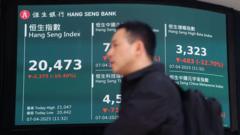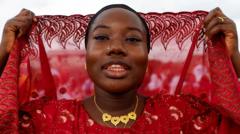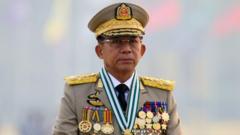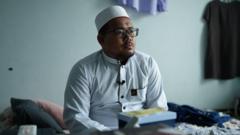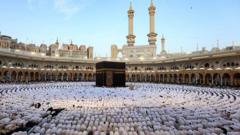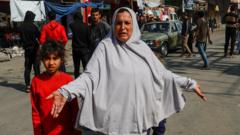In a country where political tensions simmer just beneath the surface, the end of Ramadan offers an unexpected avenue for the formation of new alliances among opposition parties in Bangladesh, particularly in the wake of recent governmental upheavals.
### Iftar Politics: The Rising Significance of Breaking Bread in Bangladesh's Political Landscape

### Iftar Politics: The Rising Significance of Breaking Bread in Bangladesh's Political Landscape
As Ramadan progresses, the Iftar tradition emerges as a pivotal moment for political alignments in Bangladesh, revealing potential shifts in power dynamics.
The local landscape transforms at sunset, when the bustling streets of Dhaka, home to over 10 million residents, become momentarily hushed as Muslims observe the Iftar ritual, breaking their fast after a long day. However, for political parties, this period becomes a golden opportunity for connection and strategy.
The recent Iftar parties held across the city have drawn considerable attention. Observers closely monitored the guest lists: which political figures mingled together, who sat next to whom, and what these dynamics could suggest about future collaborations. With the ousting of authoritarian Prime Minister Sheikh Hasina last summer, speculation ran high about how the tides of political support might shift.
Among the notable gatherings was an Iftar hosted by Gono Odhikar Parishad, a party that emerged from the 2018 student protests, which signaled a fight against the established political norms. Such events not only provide nourishment after a day of fasting but also serve as a strategic platform for parties to deliberate future coalitions and alliances amid uncertainties.
As the end of Ramadan approached, the implications of these gatherings became more significant. Each Iftar party fostered an atmosphere ripe for negotiations, discussions, and perhaps the strategizing of new paths for the country, reflecting the evolving nature of Bangladesh’s political landscape.
While the smell of traditional dishes wafted through the air, political ambitions simmered just beneath the surface, hinting that the landscape of power might soon look very different in Bangladesh. With each bite taken, the hope for a more united opposition grows stronger—fueling both the dinner and the political discourse.
As the nation observes these developments, the upcoming weeks may reveal just how significantly these gatherings at sunset could reshape the current political climate.
The recent Iftar parties held across the city have drawn considerable attention. Observers closely monitored the guest lists: which political figures mingled together, who sat next to whom, and what these dynamics could suggest about future collaborations. With the ousting of authoritarian Prime Minister Sheikh Hasina last summer, speculation ran high about how the tides of political support might shift.
Among the notable gatherings was an Iftar hosted by Gono Odhikar Parishad, a party that emerged from the 2018 student protests, which signaled a fight against the established political norms. Such events not only provide nourishment after a day of fasting but also serve as a strategic platform for parties to deliberate future coalitions and alliances amid uncertainties.
As the end of Ramadan approached, the implications of these gatherings became more significant. Each Iftar party fostered an atmosphere ripe for negotiations, discussions, and perhaps the strategizing of new paths for the country, reflecting the evolving nature of Bangladesh’s political landscape.
While the smell of traditional dishes wafted through the air, political ambitions simmered just beneath the surface, hinting that the landscape of power might soon look very different in Bangladesh. With each bite taken, the hope for a more united opposition grows stronger—fueling both the dinner and the political discourse.
As the nation observes these developments, the upcoming weeks may reveal just how significantly these gatherings at sunset could reshape the current political climate.








